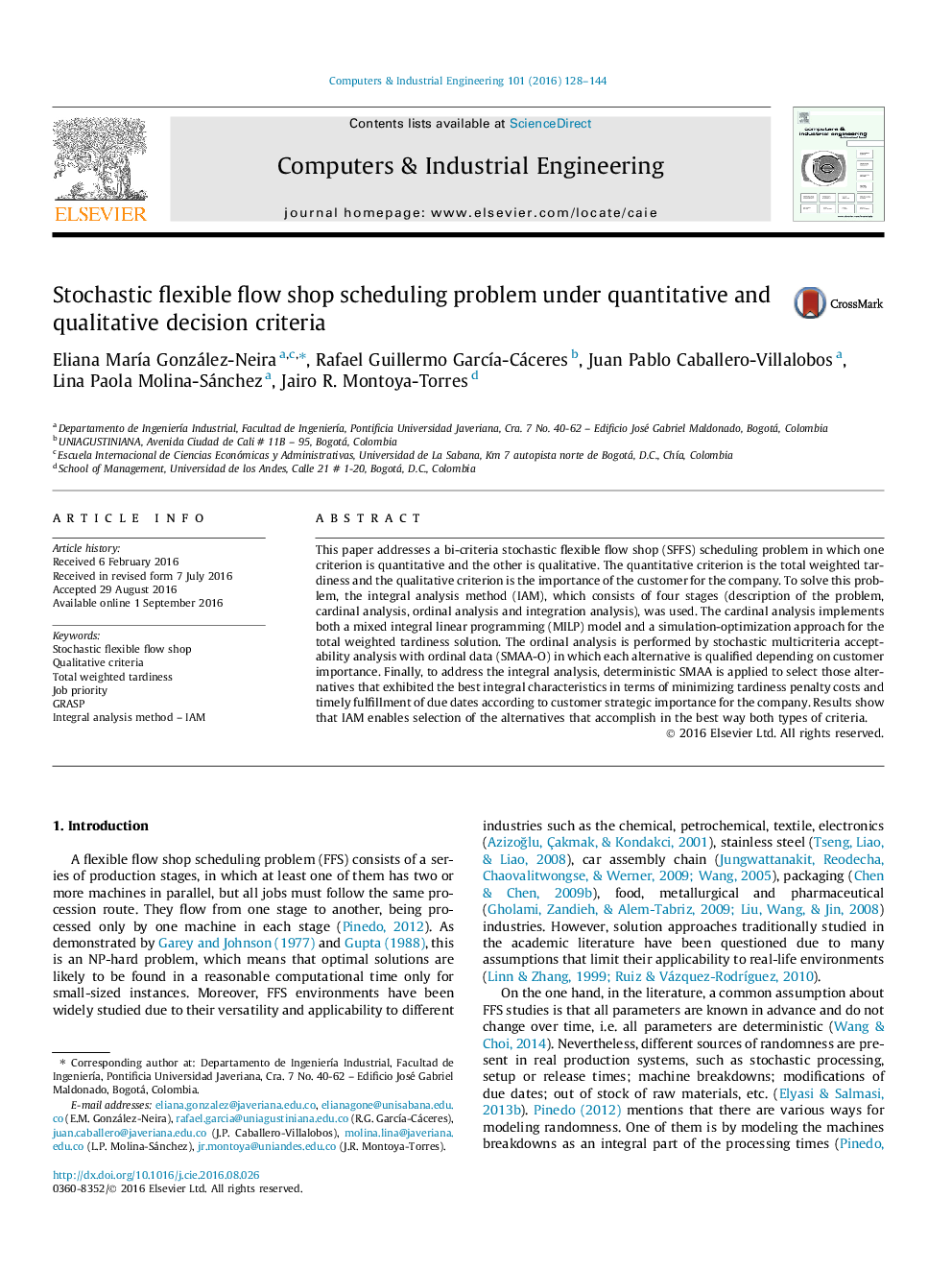| Article ID | Journal | Published Year | Pages | File Type |
|---|---|---|---|---|
| 5127881 | Computers & Industrial Engineering | 2016 | 17 Pages |
â¢A stochastic flexible flowshop is solved under quantitative and qualitative criteria.â¢Tardiness cost per job per unit time is treated separately of the customer importance.â¢Integral Analysis Method allows selecting the best solutions for both criteria.
This paper addresses a bi-criteria stochastic flexible flow shop (SFFS) scheduling problem in which one criterion is quantitative and the other is qualitative. The quantitative criterion is the total weighted tardiness and the qualitative criterion is the importance of the customer for the company. To solve this problem, the integral analysis method (IAM), which consists of four stages (description of the problem, cardinal analysis, ordinal analysis and integration analysis), was used. The cardinal analysis implements both a mixed integral linear programming (MILP) model and a simulation-optimization approach for the total weighted tardiness solution. The ordinal analysis is performed by stochastic multicriteria acceptability analysis with ordinal data (SMAA-O) in which each alternative is qualified depending on customer importance. Finally, to address the integral analysis, deterministic SMAA is applied to select those alternatives that exhibited the best integral characteristics in terms of minimizing tardiness penalty costs and timely fulfillment of due dates according to customer strategic importance for the company. Results show that IAM enables selection of the alternatives that accomplish in the best way both types of criteria.
